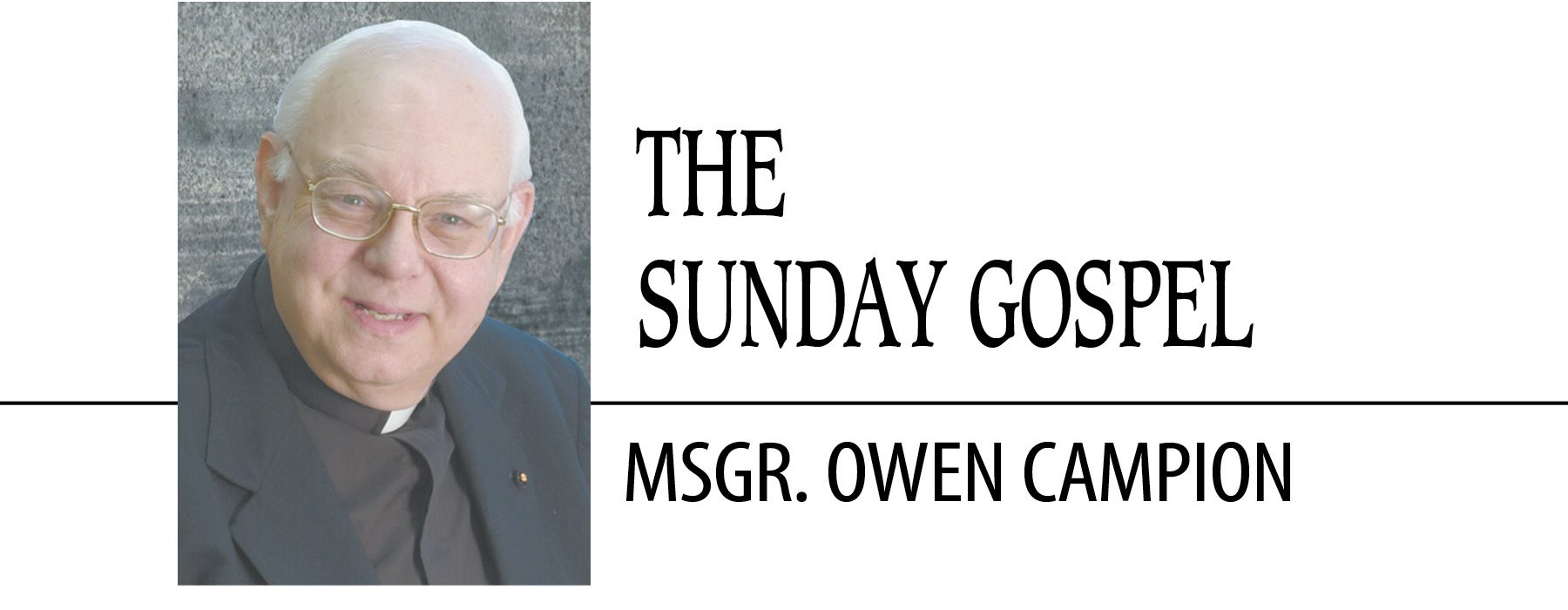September 24, 2022 // Perspective
Be Rich in What Matters
Twenty-Sixth Sunday in Ordinary Time
Luke 16:19-31
The Book of Amos is the source of this weekend’s first reading. The book itself states that it was written during the reign of King Uzziah of Judah, or between 783 and 742 BC.
The two Hebrew kingdoms of Judah in the south, and Israel in the north, were at peace, and most people were prosperous, but many were not so fortunate.
Also, tranquility and ease had dulled in the people’s collective mind their sense of needing God.
Along with this, apparently many were lax in their religious observances. So, Amos rebuked them, condemning their sluggishness in religion and morally careless living.
More than a denunciation of outright vice, Amos blasted their lukewarmness and their living as if nothing good, noble, and of God mattered. Along with all the prophets, Amos saw in such circumstances clear signals that the society was weakening, and as it weakened, peril awaited.
St. Paul’s First Epistle to Timothy supplies the second reading. Timothy was an early convert to Christianity. As his life unfolded, he became Paul’s disciple and a Christian leader in his own right, destined to be one of the major figures in the development of Christianity.
The epistle calls Timothy to be resolute, citing the example of Jesus in the Lord’s trial before Pontius Pilate. Being distracted from such faithfulness was easy because everywhere was the glory, power, and excesses of the mighty Roman Empire.
Despite all this seeming power of Rome, the reading insists that God’s goodness and justice will endure and that Jesus will come again in triumph and vindication.
St. Luke’s Gospel furnishes the last reading. It is a parable, rather straightforward in its message. The picture vividly presents a setting for the message of the parable.
A rich man is enjoying all the benefits of financial success and well-being. By contrast, Lazarus is desperately poor. He has nothing. He is hungry. He yearns to have the scraps that fell from the rich man’s table.
In time, Lazarus dies. Eventually the rich man also dies. When the rich man reaches the hereafter, he realizes that now he himself is in great need, whereas Lazarus is being held close to Abraham, the father of the Hebrew people.
By this time, the once-rich man is desperate. He pleads with Abraham for just a drop of water. This once-rich man implores Abraham to send Lazarus back to earth to warn the rich man’s brothers that they too will be punished unless they turn to God and forsake greed.
This end to the story is thought-provoking. Abraham replies that messengers already have been sent, namely Moses and the prophets, and were ignored.
People can wreck their lives and their eternal lives, but their doom is their choice. God warned them, showing them the right way.
Reflection
The readings, especially that from Luke’s Gospel, are clear lessons. It is more than a question of not being greedy or unjust in commercial dealings. Rather, Christians must judge earthly life by a standard that often the world rejects.
At the time of Jesus, many thought that earthly riches showed that God had blessed the rich, whereas poverty and want indicated that a great sin somehow lay in the background of the sinner.
Some Christian, although not Catholic, theologies tend toward this notion today. Surely popular opinion holds that God’s blessings are material.
Jesus totally debunks this notion. Only peace and union with God are worth anything. They are worth everything. So, the Christian standard sees everything else as secondary, or even irrelevant.
The story of the rich man and Lazarus presents reality. When we end our earthly lives, riches will mean nothing.
The best news. Delivered to your inbox.
Subscribe to our mailing list today.






